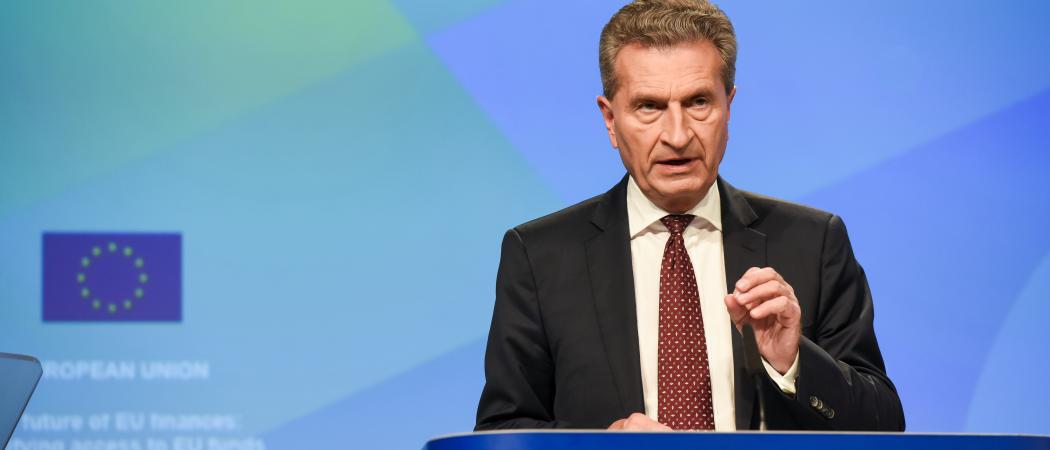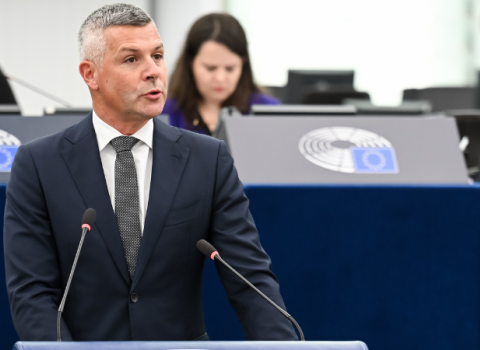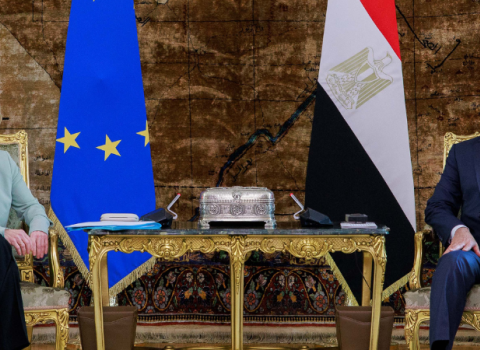Budget Commissioner Günther Oettinger pleads with governments to reverse proposed €500M cut to next year’s Horizon 2020 budget next year saying, “If you are not prepared to invest in 2018, you will have to invest more in 2019 and 2020”

European Commission budget chief Günther Oettinger has called on European governments to scrap proposals to cut almost €500 million from the Horizon 2020 research programme, arguing that it would be a false economy and leave Europe trailing China and the US.
“If you are not prepared to invest in 2018, you will have to invest more in 2019 and 2020,” the Commissioner for budget and human resources warned on Wednesday.
In May, the Commission put forward a budget of €160.6 billion for 2018. The Council response in July asked for a €1.7 billion reduction, in a proposed budget that would see research suffer the biggest losses.
Other cuts proposed by the Council include €46 million from the Galileo and Egnos satellite navigation programmes, €33 million from the ITER nuclear fusion project and €20 million from the Copernicus Earth-observation programme.
“We talked some years ago about reaching three per cent of GDP investment in research; we are at two per cent and the less we invest, the less we can achieve,” said Oettinger. “Research is the premise for future competitiveness. The cut sees Europe going in the wrong direction, when we need to be keeping up with the Pentagon and China.”
Brexit hole
Although the impact of Brexit on the EU budget will not be felt until 2019, the UK’s departure is already forcing governments to look for savings.
However, the noise from Brussels is that research funding should be protected.
Oettinger’s comments follow a similar warning by EU Research Commissioner Carlos Moedas last week. “I think the cuts are wrong,” Moedas said. “How can you [cut the science budget], in a Europe that wants to be top of development, first in class?”
If there are cuts, it would mean three out of four proposals for digital-related research projects would need to be abandoned, Oettinger said.
It would also have bad consequences for the flagship research project on quantum computing, personalised medicine and cancer research.
The European Parliament’s Siegfried Mureşan, the assembly’s key budget draftsman, has warned that cuts to nuclear research could prevent the Joint Research Centre from paying the salaries of its staff.
The Commission, Council and Parliament must reach a final agreement on the budget by November 20.
Research to be cut as Juncker’s investment fund is boosted
Oettinger’s comments were made as the European Parliament and member states agreed in principle to the extension and strengthening of the European Fund for Strategic Investments (EFSI), with the initial three-year 2015-2018 programme now extended to 2020.
The target for the amount of investment to be triggered has been increased from €315 billion to at least €500 billion by 2020.
The EFSI will reach new sectors such as sustainable agriculture and fisheries, as part of the overall emphasis on financing projects in line with the Paris Agreement targets on moving towards a low-carbon economy.
ESFI is supporting key public and private investment projects and financing a huge range of small businesses and start-ups, said Commission vice president Jyrki Katainen. “With its increased firepower and duration, the EFSI will continue to be an important driving force in the EU's economic recovery,” Katainen said.





 A unique international forum for public research organisations and companies to connect their external engagement with strategic interests around their R&D system.
A unique international forum for public research organisations and companies to connect their external engagement with strategic interests around their R&D system.